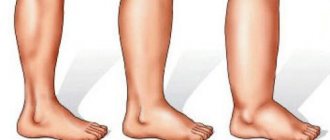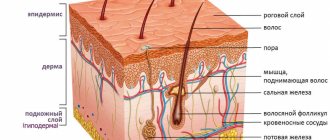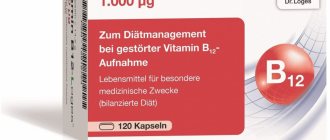- How to live without alcohol?
- Is it possible to get rid of cravings for alcohol?
- How is the fight against alcohol addiction going at the Center for Healthy Youth?
Find answers to all these questions in the article.
Who can be considered an alcoholic?
People who regularly drink alcohol sometimes wonder if they have an addiction and who is considered an alcoholic?
How do you know if you are an alcoholic or not?
- Your loved ones are addicted to alcohol.
- You are looking forward to a new feast and another gathering with a glass.
- You cannot relieve stress and relax without drinking alcohol.
- Sit at the table until the last minute.
- A few drinks are not enough for you; you need more to feel intoxicated.
- Independent use takes place.
- You can’t imagine life without alcohol, you look for excuses for drinking, you think that you can quit tomorrow.
- Drink more than once a month.
- Gradually the amount of alcohol consumed increases.
- In a state of alcoholic intoxication, you do not always control yourself, you get drunk to the point of unconsciousness.
- You can't convince me to get treatment
? - We will help you with motivation for treatment. As a rule, it is difficult for loved ones to persuade or force an addict to undergo treatment. World experts have developed EFFECTIVE motivation schemes, using which you can lead an addict to the decision to seek help. 8
To which institution can an alcohol addict be taken?
There are dozens of drug treatment centers in the capital and beyond that will help with organizing treatment. Alcoholics are often returned to normal life, without side effects or relapse. Of course, the process requires a professional approach, a wide range of services, and patience. Almost always, the treatment process, its features and duration, depend on the duration of the disease, the general condition of the patient’s body, and the damage that has already been caused to his health.
In order not to violate the law on voluntary treatment, one of the above points is required. For example, a patient is hospitalized in a state of intoxication, such a person behaves generally inappropriately, and his mental state is disturbed. Doctors note that there is inappropriate behavior and the possibility of causing physical harm to oneself or others.
Another option: the patient is a chronic alcoholic and does not agree to treatment. He can be sent for compulsory treatment in another way, by proving that he is dangerous or insane. A conclusion is needed about the mental disorders of an alcoholic that manifest themselves under the influence of alcoholic beverages. How to argue and prove inadequacy and danger to society?
- Photographs or video recordings that show that a person in a state of intoxication behaves inappropriately; the presence of a mental disorder is beyond doubt;
- The police were called, who drew up a conclusion about the inadequacy of the alcoholic;
- The police took the drunk man to the police station and from there sent him to the clinic.
Initial stage of addiction
If you can’t even imagine how to stop drinking alcohol, if you don’t spend a single holiday or meeting with friends without a glass of beer or a glass of something stronger, we are already talking about the first stage of alcoholism. The situation will only get worse in the future, so it is necessary to act at the first signs of addiction. Call our drug treatment center, our doctors know how to cure alcoholism. All alcoholics started with a few glasses, but addiction tends to progress, tolerance arises, and it moves to a new, more dangerous stage.
Signs of the second stage of alcoholism
- Tolerance occurs: the body gets used to a certain dose of alcohol, in order to get the desired intoxication, a person has to drink more and more.
- The occurrence of withdrawal syndrome. Without the next dose or when trying to find an easy way to stop drinking, a person faces withdrawal, which is often confused with a hangover. It is accompanied by nausea, tremors, sweating, chills, and painful sensations throughout the body.
- The state of the addict depends on alcohol. If a person has drunk alcohol, he is cheerful and cheerful, otherwise there is nervousness, irritability, and aggression. Alcohol takes away the joy of life from the addict.
- Relationships within the family and with loved ones deteriorate. An alcoholic often lies for his own benefit and may use violence.
Do you want to know about the cost of services?
8 call our specialist
Recognize withdrawal symptoms
Alcohol addiction is an insidious disease that is difficult to cope with. Even with treatment, it reminds itself for a long time with the presence of withdrawal symptoms. They are the ones who prevent you from completely giving up your bad habit. It is extremely important for a person to learn to recognize the symptoms of withdrawal in order to have the strength and ability to avoid a relapse.
Quitting alcohol causes serious changes in the body. That is why, even in a sober state, an alcoholic continues to experience unpleasant symptoms:
- causeless mood swings;
- increasing anxiety and anxiety;
- feelings of fear and uncertainty;
- increase in emotional tension.
These manifestations are associated with the negative effects of alcohol on the nervous system. Depending on the degree of destruction of the body and the length of alcoholism, symptoms may persist for a year after quitting alcohol. It is very important to learn to recognize them and understand the nature of their appearance.
If a person allows himself to drink, the symptoms first subside, but then return and attack with even greater force. In this case, the recovery period is proportionally delayed.
The third stage and its danger
If in the early stages an alcoholic is still thinking about how to stop drinking on his own, moments of enlightenment come to him, then at the last stage of chronic alcoholism he does not care about anything except a glass. The addict quickly gets drunk, the body is already completely accustomed to regularly supplied ethanol, and all biochemical processes are disrupted. Without another drink, an alcohol addict experiences a sharp deterioration in his condition, similar to drug withdrawal.
So, at the third stage, physical and intellectual degradation occurs, diseases such as liver cirrhosis, hypertension, diabetes mellitus develop, and the risk of heart attack, stroke, mental disorders, and depression is high. A person degrades as a person, intellectual abilities decrease, as brain cells and neural connections die. In the last stage, people live very short lives. Help for alcoholism is needed in this case as soon as possible.
Restoration of gastrointestinal tract activity
The consequence of binge drinking is the formation of inflammatory processes on the mucous membranes of the gastrointestinal tract. This can provoke the development of ulcers, gastritis, and other diseases.
Eating small meals will help you recover from binge drinking. Kissels and oat decoctions included in the diet will prevent the spread of inflammatory processes.
Lack of protein is another negative consequence of long-term drinking bouts. Protein deficiency will be eliminated:
- low-fat chicken broth;
- milk and especially fermented milk products;
- a large amount of liquid to restore metabolic processes.
Of course, you need to give up salty, spicy foods, eliminate fatty foods, smoked foods, and sweet sodas with dyes.
Why don't all people become alcoholics?
How to avoid becoming an alcoholic? Our country has a rather unique drinking culture. We accept drinking on any occasion or without, on holidays, christenings, name days, funerals, birthdays, in honor of shopping or just in the company of friends. However, not all people who sometimes drink alcohol become alcoholics and drink too much. Why is this happening?
You should not think that alcoholism arises as a result of weak will, poor upbringing, etc. In fact, this is a real disease, according to WHO, an irresistible craving for alcohol, which arises due to certain biological, psychological or social reasons. A specialist in the treatment of alcohol addiction, Dr. William Duncan Silkworth, back in 1935, put forward the theory that alcoholics develop allergies to the substances they use. They have a deficiency of certain neurotransmitters, joy hormones, serotonin and dopamine, due to which they try to replace them with alcohol. Ethanol improves your mood, which is why addiction and cravings for alcohol occur. When consumed, people develop a non-standard allergic-type reaction.
Normally, a person who has consumed a couple of glasses of alcohol stops on his own, as he feels intoxicated and intoxicated in the body. For people with a lack of the joy hormone, everything works differently. By drinking alcohol, they feel better, their mood rises, their well-being improves, and as a result, they become addicted. Biochemical processes change in the body, forcing the addict to turn to alcohol again and again.
There are no drugs that could change a person’s hormonal levels and eliminate such a reaction to alcohol, but specialists at the Center for Healthy Youth know how to discourage the desire for alcohol in an addict with the help of comprehensive treatment and rehabilitation, as well as effective medications and psychotherapy. If you want to know how to stop drinking alcohol forever, contact us, we have helped hundreds of people achieve the sobriety they desire, and we will help you too. An integrated approach to solving the problem helps to overcome addiction and quit drinking alcohol once and for all.
Psychotherapy
Women are more likely to be addicted on a psychological level, so the main method of getting rid of alcoholism is psychotherapy. This is due to the peculiarities of emotional perception and good suggestibility. Women quickly make contact with a psychotherapist and share their experiences and problems. This allows the doctor to determine the cause of the addiction and eliminate it.
Family values are of great importance for a woman, therefore group psychotherapeutic sessions are used in the treatment of alcoholism. The presence of loved ones and their support will speed up recovery from addiction. A psychotherapist will help restore family relationships destroyed due to addiction, find mutual understanding, and establish communication with loved ones.
Is it possible to stop drinking alcohol on your own and forever?
How to get rid of alcohol addiction on your own? Is it possible to stop drinking at home without doctors or pills? First of all, it is important to know the mechanisms of addiction development. More than 18% of people on the planet suffer from alcoholism. In our country, every third family faces this disease. When a person with unhealthy biochemistry drinks alcohol for the first time, an allergy mechanism is triggered, which leads to an unhealthy craving for alcohol. A person can try alcohol anywhere: at a festive table, finding a bottle at home, treating himself. How can a man avoid drinking alcohol? You can simply stop using, but this will only help if there is no addiction. If there is a tendency to drink, the addict will start drinking again, even though he knows about all the dangerous consequences of alcoholism.
Should you be afraid of coding?
There's nothing scary about coding. You just need to consult an experienced doctor to carry it out. Today, medication and psychotherapeutic programs are used to reduce cravings for drinking. They have proven themselves to be safe and effective.
The only thing is that the drinker needs to be determined to recover and under no circumstances drink alcohol after coding. Then everything will be fine with his health.
The phenomenon of "obsession of the mind"
Addiction occurs due to a disorder in thinking. Scientists in the field of addiction from the USA introduced the term “insanity”, which literally means “madness” or “obsession of the mind.” How does the phenomenon manifest itself? There are 4 basics: self-deception, mania, melancholy and self-deception. If a person has depression, unhealthy cravings and obsessive thoughts about alcohol, lack of awareness and inability to predict the result of his actions, he will perceive alcohol as the only source of joy in the subconscious.
How to give up alcohol on your own?
How to stop drinking beer every day and get rid of drunkenness? When an addict is sober, he feels uncomfortable, behaves irritably, gets nervous and dreams of drinking quickly. To get rid of discomfort, a person drinks. The longer the addiction, the greater the volume of alcohol. Soon, quite predictably, a binge ensues. During a drunken state, a person does not think about how to stop drinking alcohol; awareness usually comes after waking up when the condition worsens. He feels self-pity, guilt for what he has done, and fear. Stress and nervousness soon lead to another binge. A vicious circle arises.
Even if the addict has a strong will, the combination of physical and psychological dependence will not allow him to quit drinking on his own and get rid of alcohol addiction. On various mutual help forums for alcoholism, it is said that in order to get out of binge drinking, it is enough to reduce the daily dose and gradually reduce it to nothing. But not everything is so simple, abstinence will return the alcoholic to normal, as his condition will significantly worsen.
Find the benefits of sobriety, immerse yourself in religion, creativity, hobbies, and many other things are advised to replace alcohol so as not to drink. However, treating alcoholism is a complex process; conspiracies, prayers, folk remedies and advice will not help. During addiction, alcoholics often drink against their will, because they feel an irresistible craving for alcohol, and also know what awaits them if they abruptly stop drinking. It is impossible to solve the problem at the physical level, since the disease lives in the subconscious of the patient; the fight against alcoholism must be comprehensive.
The main types of long-term binge drinking
Many people mistakenly assume that drinking alcohol for many days is the main sign of alcoholism. But this is a symptom of the second, advanced stage of the disease. It is preceded by unsystematic but frequent drunkenness. But at the same time, the “dose” of strong drinks taken can reach 500 ml (vodka). Subsequently, the next morning after drinking, withdrawal symptoms occur, the symptoms of which (unlike a regular hangover) can only be relieved by another drink.
It is abstinence that is the first predictor of the stage of binge alcoholism. There are several types of binge drinking.
Without a prodromal period (like pseudo-binges)
The addict loses control over himself after drinking even a small amount of alcohol, and gradually the daily “dose” reaches 1.5–2 liters of vodka. Withdrawal is very severe and occurs quickly - after just a few hours. In the first 2–3 days, the severity of withdrawal symptoms increases, and at the same time the amount of alcohol consumed also increases.
In general, the duration of this form of drunkenness is up to 12 days. Before its end, the state of health deteriorates significantly, severe weakness and insomnia are typical. Intoxication during pseudo-binge is usually accompanied by malice and aggressiveness, but there are no serious impairments of coordination or speech.
If the patient himself, without professional help, tries to reduce the amount of drinking, which leads to insomnia and an anxious and melancholy mood. In general, symptoms of severe alcohol withdrawal after a long period of heavy drinking (about 2 weeks) can last up to 5 days. The main difference between pseudo-binge is self-cessation, which the addict explains by shame, financial difficulties, conflict in the family, and problems at work.
But despite this, such excesses occur with clear frequency. Moreover, at the peak of withdrawal syndrome, psychosis and convulsive seizures are not excluded.
True
This form of binge drinking is characterized by the presence of a prodromal period, which manifests itself
- sad mood with a feeling of a joyless existence;
- anxiety;
- fussiness;
- irritability;
- anger.
At the same time, the mood changes without any apparent reason and, to improve his condition, the person begins to drink small portions of alcohol, which almost immediately cause intoxication. It is accompanied by aggression, outright anger, and then all the events that took place are amnesiac.
Withdrawal symptoms appear quickly, forcing the addict to drink constantly. At the same time, the attraction to alcohol reaches such a degree that the patient, in principle, does not care what to drink: if there is no vodka, low-quality and toxic substitutes are used. Your health immediately worsens. Note:
- asthenia;
- arrhythmia;
- swelling;
- shortness of breath with a feeling of lack of air;
- dizziness;
- decreased muscle tone, which is accompanied by impaired coordination of movements;
- tremor covering the whole body;
- lack of appetite (lose at least 5 kg), aversion to food, nausea and vomiting.
Characteristic neurological and mental disorders:
- slow, slurred speech;
- deterioration of cognitive abilities;
- hallucinations against the background of insomnia, while the boundary between sleep and reality is completely erased.
By the end of the drinking period, the addict becomes drunk even after a glass of vodka. Tremors, sweating intensify, and severe headaches appear. Each new portion of strong drinks causes nausea and vomiting. A person experiences a strong aversion to alcohol, but is forced to drink to reduce the symptoms of withdrawal.
Binge drinking for 1 month or more
The third stage of alcohol addiction is characterized by daily drinking. The patient drinks almost constantly, up to several times a day, and this period can last three months, the binge is not accompanied by severe withdrawal symptoms. But such an excess is typical of severe somatic and neurological disorders, clinical manifestations of concomitant pathologies (liver damage, cardiac, metabolic, endocrine disorders), decreased immunity, and personality degradation.
Pitfalls of self-medication
Often loved ones try to provide help for alcohol addiction on their own, but self-medication is a very dangerous and risky undertaking that can lead to a sad ending.
- Abrupt withdrawal from binge drinking leads to withdrawal symptoms. If an addict decides to abruptly quit drinking, or his loved ones limit his access to alcohol, the body will react back due to physical dependence. Seeing how an alcoholic suffers, relatives often follow his lead and buy another bottle so that he can alleviate his condition.
- Another obstacle to effectively combating alcohol on your own is its availability. You can buy alcohol inexpensively at any store near your home. It is essentially a legal drug, but its easy availability creates the illusion of safety.
- Drinking buddies. Dependent friends will not allow a person to leave their company; they turn a person against his family and minimize the problem. Surrounded by people who drink, it is almost impossible to quit. That is why during treatment and rehabilitation the patient of the drug treatment center is completely protected from society.
- Lack of stress resistance. Any problem or trouble in life leads to stress, which a person cannot cope with without a glass. He cannot resist the temptation to drink, because he knows that alcohol will help him get away from his problems.
Content:
- From single drinking bouts to long drinking bouts.
- The main types of long-term binge drinking: 2.1. Without a prodromal period (like pseudo-binges). 2.2. True. 2.3. Binge drinking for 1 month or more.
- Binge drinking for more than a month: how to get a patient out of this state: 3.1. Drug therapy. 3.2. Hardware detoxification techniques.
Binge drinking is an indisputable sign of the progression and severe course of alcoholism. At this stage, the doctor is faced with the problem of ridding the patient not only of mental, but also of physical dependence. In addition, prolonged alcohol intoxication does not leave its mark on the body. When examining a patient after a long binge, at least liver steatosis, persistent arrhythmia, and disorders of fat and protein metabolism are detected. And these pathologies also require long-term and thorough treatment.
Methods to combat alcoholism
In modern narcology, there are quite a few ways to treat alcohol addiction. Let's look at the most popular ones and evaluate their effectiveness.
Folk remedies for alcoholism
Treating addiction using folk remedies is very dangerous. If prayers and conspiracies simply do not bring the desired result, then all sorts of lotions, ointments and herbal decoctions with unproven effectiveness can do harm. All these are ways of making money for scammers, nothing more. It is important to understand that an alcoholic’s body is weakened and any wrong action can lead to a worsening of the condition. Among the consequences of self-medication: exacerbation of diseases of internal organs, severe intoxication, mental disorders.
Prohibitive therapy - alcohol coding
How to get your husband to stop drinking alcohol? It is possible and necessary to fight alcoholism. Only an experienced doctor knows how to help an alcoholic get out of the clutches of addiction. There are different types of encoding for this.
Among the most common:
- alcohol binder;
- injection;
- hypnosis.
Among the disadvantages of this procedure, it can be noted that it is not suitable for everyone; in 4% of cases, coding may be ineffective. Hypnotherapy is only suitable for suggestible people, pills will only help those who really want to stop drinking, and sewing in a torpedo can result in intoxication during a relapse. However, narcologists know their business and comply with all conditions for effectiveness: sobriety, consent to treatment, existing contraindications and characteristics of the addict’s body. The effectiveness of the encoding is controversial; on the one hand, after the procedure a person gains a dislike for alcohol, on the other hand, it only reduces the craving for alcohol on a physical and psychological level, eliminates the symptoms, but not the essence of the problem.
What can I do to get my husband to stop drinking forever? Only complex treatment will help, which may well include anti-relapse aversive therapy. Many loved ones ask questions like: how to scare an alcoholic so that he stops drinking? We are most likely talking about hypnosis. There are quite a few types of hypnotic influence on the subconscious, Ericksonian, anchoring, regressive hypnosis, NLP, Dovzhenko’s method. It is the latter technique that is based on instilling fear in the alcoholic before using. Its effectiveness depends on the suggestibility of the alcoholic.
Working with a psychotherapist
Psychotherapists and clinical psychologists are doctors who help people eradicate addiction from the subconscious and replace it with a craving for a healthy lifestyle and sobriety. However, sessions with a specialist alone are not enough for a complete recovery; a person must realize the problem and want to stop drinking, after which the psychologist will help him work through and eliminate the causes of addiction.
Change of environment and company
Often in search of an answer to the question: “How to overcome alcohol addiction?” people move, change jobs, get divorced, get married, change their social circle. However, this does not lead to the desired result, since a person has nothing to replace alcohol with, the craving will find it in another city.
As you understand, you won’t be able to overcome addiction on your own; alcoholism is a bio-psycho-socio-spiritual disease that needs to be treated comprehensively. Full recovery requires a set of measures, the desire of the addict and the direct participation of loved ones, as well as the professionalism of doctors. Effective rehabilitation is possible only in a specialized drug treatment center.
Anonymous 24 hours a day Activity is licensed Patient accompaniment
Full range of narcology services:
- tests
- drug testing
- detox
- encoding
- psychiatry
- binder
- withdrawal symptoms
8+7
How to organize treatment if the patient does not want to go to the hospital?
An alcoholic does not want to be treated - the most common problem for relatives who want to do something about a problem situation. The catch is in the laws of the country, which reliably protect the rights to voluntary treatment. It’s not so easy to admit an addict to a hospital! If the patient is an adult, treatment for alcoholism can only be voluntary - in an inpatient or outpatient setting; the law cannot force or force a person to undergo treatment. Relatives can only persuade, convince, or resort to other options in order to change the patient’s view of the situation. More often than not, persuasion yields nothing; the frightening picture that loved ones paint does not impress the alcoholic.
note
In any case, the option of compulsory treatment is available, which gives hope to those who are concerned.
Timely hospitalization gives positive results if the following actions :
- Remove dangerous toxins from the body;
- Apply medicinal treatment methods;
- Use psychological influence.
These are the main tasks of specialists who make it possible to reduce and gradually completely eliminate an alcoholic’s craving for alcoholic beverages. An equally important task is to eliminate the dangerous consequences of long-term alcohol consumption.
It is a rare alcoholic who is able to pull himself together and, of his own free will, give up alcohol, begin treatment and complete it safely. Most often, everything suits him, but it is his loved ones who suffer and try to help. In this case, we have to resort to a radical form - to create conditions for compulsory treatment.
What does treatment and rehabilitation of alcohol addicts include?
How is the rehabilitation program at the Central Medical Center? It consists of the following steps:
- Cleansing the body of alcohol toxins. Detoxification is carried out using drips, it helps to remove the addict from binge drinking, prevent withdrawal symptoms and psychosis, and also eliminate physical dependence.
- Hospital treatment. After examination, prescription of a treatment plan based on individual characteristics and normalization of the general condition of the person, the person is transferred to a 24-hour inpatient rehabilitation center. Psychosocial recovery of the addict takes place here, classes are held in groups, and work with a psychologist is held. This is necessary to gain stress resistance and the ability to resist temptations. In group classes, people are taught to cope with stress, interact with society, and restore communication skills. The addict learns to realize himself and reveals hidden potential.
- Outpatient therapy. After completing treatment, the former addict returns home and tries to apply the knowledge and skills acquired at the center in practice. During this time, he needs support and psychological help, so he can attend doctors and classes on an outpatient basis. This helps to quickly adapt to society and reduce the risk of relapse.
- Resocialization. A person restores relationships with loved ones and relatives, builds a career, finds a good job, and learns to live without alcohol.
The basis of our rehabilitation course is the 12 Steps program, which has long established itself throughout the world as an effective way to overcome the disease.
Coding without consent: features
Forced coding is one of the stages of treatment, but it will not have the desired effect if the patient does not understand the importance of sobriety and the danger of alcohol for his health and psyche. The treatment process is multi-vector, complex and lengthy, it requires the help of a narcologist, psychiatrist, psychologist and other specialists. The goal of doctors and psychologists, and to a certain extent relatives: to convey to the patient that the situation is extremely serious. If the alcoholic does not understand and is not aware of the problem, clinical measures cannot be fully effective, the addict may withdraw into himself and refuse to make contact.










